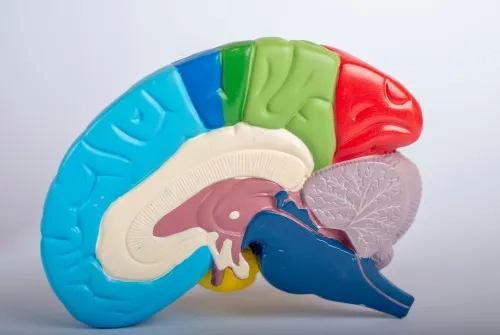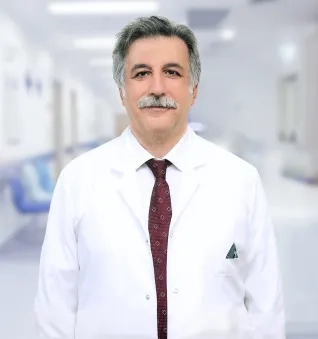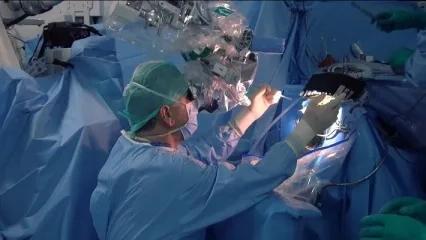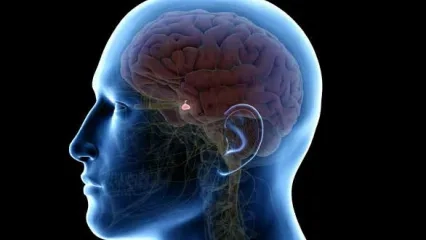Alo Yeditepe
Alo Yeditepe
Pituitary Clinic | FAQs
How is the surgical treatment of pituitary tumors performed?
Two commonly used methods are used in the surgical treatment of pituitary tumors; Transsphenoidal Surgery; Under general anesthesia, it is the removal of the lesions with the help of a microscope or endoscope by opening a bone window at the base of the skull by entering through the nose. Transcranial Surgery: It is the opening of a bone window in the skull to reach the lesion and remove the lesion with the help of a microscope.
How Long Does the Pituitary Tumor Surgery Take?
Hastaların çoğu ameliyat odasında 4-5 saat kalırlar, ancak ameliyat süresi ameliyat türüne, lezyonun konumuna ve büyüklüğüne göre bazen daha uzun sürebilir veya daha kısa olabilir.
Is surgery necessary in all pituitary tumors?
No. Tumors that secrete high amounts of the hormone prolactin (prolactinoma) usually respond to medical treatment. Non-secretory adenomas smaller than 1 cm (microadenoma) detected by chance can be monitored with serial MRI follow-ups.
What are the risks of surgical treatment?
The rate of surgical treatment complications in our clinic is low. The most common complication is damage to the normal pituitary gland. This means that after surgery, new hormone replacement may possibly be required, including thyroid hormone, cortisol, growth hormone, estrogen, or testosterone.
Damage to the back of the pituitary gland can cause a condition known as diabetes insipidus, which can lead to frequent urination and excessive thirst since the kidneys can no longer concentrate urine enough. This can be controlled in the form of a nasal spray, or a pill of a drug called DDAVP.
Cerebrospinal fluid leakage through the nose is another possible complication. There is a possibility of correction with minor surgical interventions if any.
How will I feel when I wake up after the surgery?
Postoperative pain can be controlled with good analgesic treatment. Within a few days, the symptoms will gradually disappear.
Will there be a lot of pain or discomfort after the surgery?
Most patients experience mild to moderate discomfort for several days after surgery. The amount of discomfort varies from patient to patient, with some requiring only mild pain medications for a day or two, while few require patients to take pain medication for several weeks.
When can patients return to normal working life after surgery?
This varies depending on the patient's work. After an average of about two weeks, our patients can return to their normal daily lives.
How often and to which physicians will I go for follow-up after the surgery?
After the surgery, pituitary hormone controls of all patients are performed before discharge and necessary treatments are initiated under the control of our Endocrinology physicians. Routine checks are performed in Endocrinology Polyclinics together with Neurosurgery in the 3rd month after surgery.
When does the postoperative pathology result come out?
The pathology results of our patients are evident in an average of 5-7 days, and pathology results are communicated to all our patients by hospital physicians.
Will there be a deformity in the nose after the surgery?
Since surgery is performed with small microsurgical instruments under the microscope in nose surgeries, the normal nose structure is not damaged. Edema or pain that may occur after surgery disappears in a very short time with effective treatments.
Can I reduce the development of a pituitary tumor or the risk of a tumor returning after surgery?
There is no scientifically proven way to reduce these risks. Adopting healthy behaviors such as not smoking, eating a good and balanced diet, doing regular physical activity, and staying at a healthy weight may help, but there is no definitive information that these lower the risk of pituitary tumor formation. Such changes are known to have positive effects on your overall health.
This content was prepared by Yeditepe University Hospitals Medical Editorial Board.
”
See Also
- What is Hypoglycemia?
- Did You Know That Our Bodies are Managed by Hormones?
- Misconceptions About Hypertension
- What is Hypertension?
- Chronic Pelvic Pain
- What is Polycystic Ovary Syndrome/PCOS?
- The Hidden Problem Seen in One out of Every 10 Women: HIRSUTISM
- Persistent Headache May Be a Sign of Tumor
- The Purpose of Pituitary Diseases is to Avoid Waste of Time with the Right Treatment
- Pelvic Floor Muscles Should Be Addressed with a Multidisciplinary Approach
- Protect Children From Sports That Will Knock Their Head
- Polycystic Ovary Syndrome Can Occur If the Bacteria in the Gut Are Not Functioning Well
- Doctor Support for the Ban on Heading by Children
- Head Trauma Can Cause Permanent Damage
- Diabetes Mellitus and its Treatment
- Treatment of Pituitary Adenomas
- Surgical Treatment of Pituitary Diseases
- What are Pituitary Diseases?
- What is the Pituitary Gland, What are its Functions?
- What is Hirsutism?
- Hirsutism Clinic / FAQs
- Treatment Success in Brain Tumors Also Depends on the Family
Alo Yeditepe




